Do you need nuclear data for production? Check out Isotope Production Nuclear Data Issues to request it!
Every year, approximately 17 million nuclear medicine procedures (both diagnostic and therapeutic) are performed in the U.S. alone. Most of the radionuclides currently used for these procedures are produced by low- and intermediate-energy accelerators, e.g., 11C, 18F, 68Ga, 82Rb, and 123I. These accelerators also produce non-medical radionuclides with commercial value, such as 22Na, 73As, 95mTc, and 109Cd. However, the production of radioisotopes for research, industry, and commercial purposes is in short supply. Consequently, through the research necessary to address such deficiencies, it is possible to expand this list of options to include novel and emerging isotopes, as well as develop alternative pathways for production of established isotopes. Isotope production sits at the intersection of a number of different multidisciplinary fields: chemistry, biochemical engineering, experimental nuclear physics, and nuclear medicine. Bringing together these different disciplines allows for the development of next-generation, personalized approaches to medical imaging and cancer therapy. Most of the work being done by our program is performed under the auspices of the DOE Isotope Program, managed by the Office of Science. In particular, our program specifically focuses on:
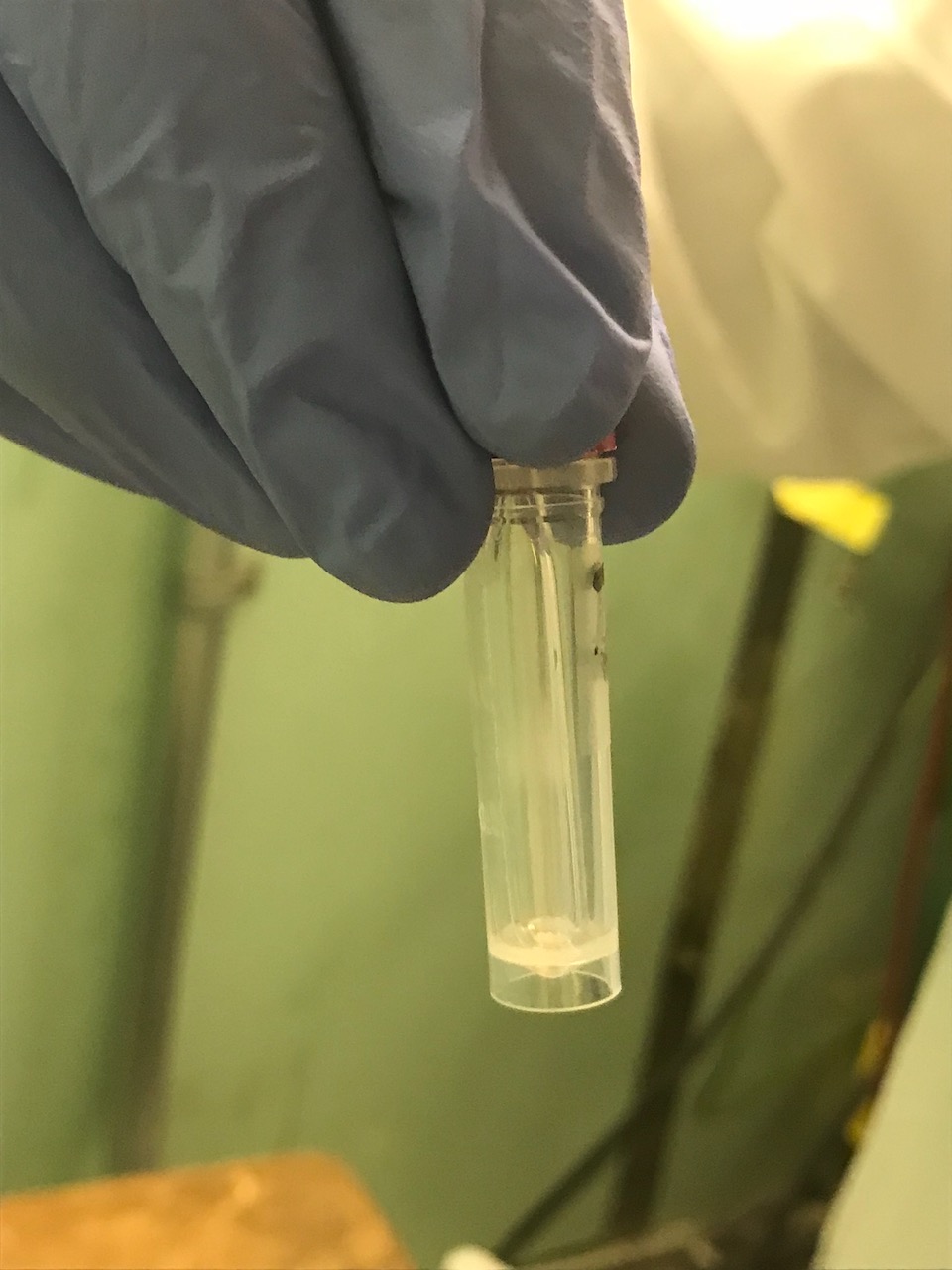
Production of Novel Medical Isotopes
Novel applications are being explored for several radionuclides whose production methodologies are not established, but their production requires accurate, high-fidelity cross section data. Candidate isotopes to meet these needs have been identified based on their chemical and radioactive decay properties, and we are leading a series of campaigns to perform targeted, high-priority measurements of thin-target cross sections and thick-target integral yields. These studies will serve to facilitate the production of clinically relevant quantities of medical radionuclides.
Rather than engaging in routine production activities for the DOE Isotope Program, our program directly supports these efforts, through fielding targeted experiments which address nuclear data needs for ongoing production, exploring alternative pathways for routine production, and identifying candidates for the next generation of production efforts.
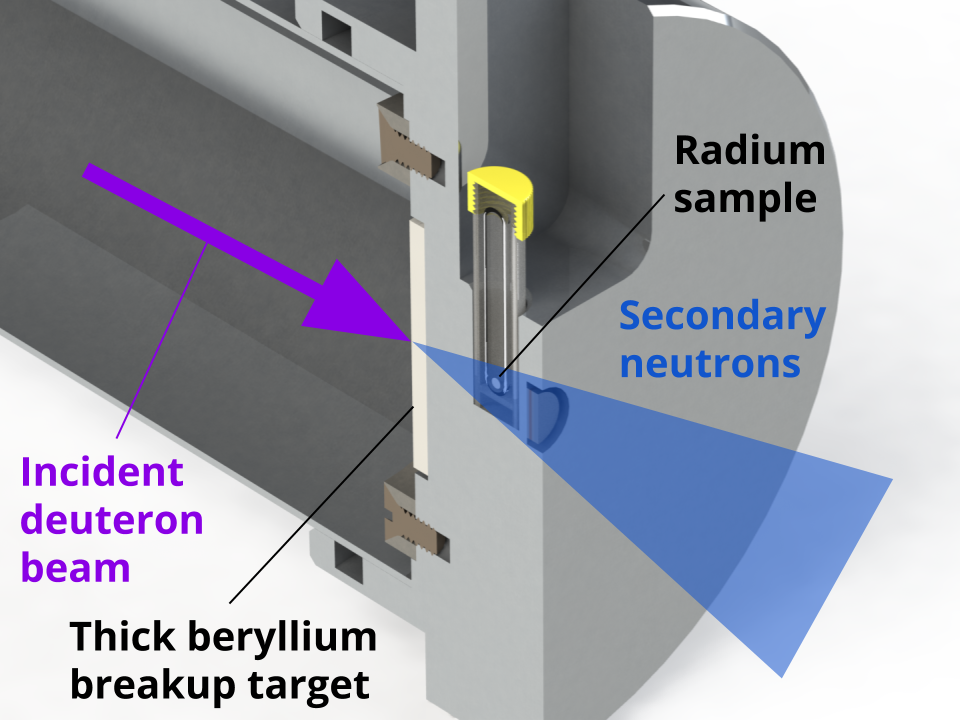
Development of intense neutron source capabilities
99mTc is currently far-and-away the most commonly used diagnostic imaging radionuclide, but diminishing stockpiles have made the search for alternative production pathways a pressing concern. Like 99mTc, many established radionuclides are currently produced in thermal and fast nuclear reactors, which have significant start-up costs and proliferation concerns involved in their commissioning, along with low-purity radionuclide yields.
Our program is developing intense neutron source capabilities, including a compact, high-flux DD-fusion neutron generator, intense and forward focused "jets" of fast neutrons via deuteron breakup, and tunable monoenergetic neutron “beams” via Li(p,n) targets. These open up the possibility of high-purity alternative production pathways, which avoid the the co-production of unwanted activities via neutron capture in a reactor.
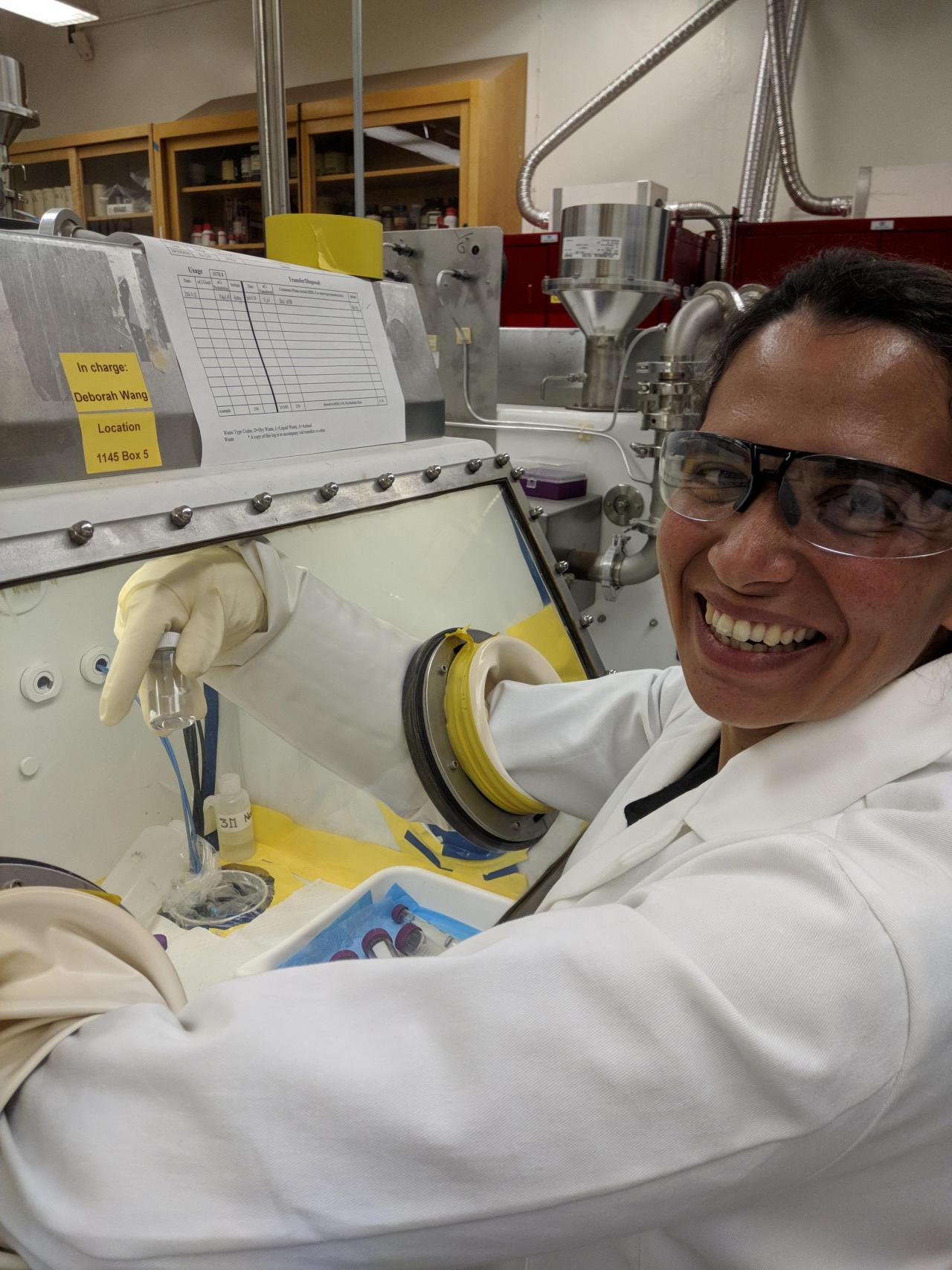
Radiochemical purification and separations
Following the production of any isotope, purification work must be done to separate the product from the irradiated target, and prepare it for clinical usage. A number of radiochemical methods are commonly used to isolate and purify a reaction product, including radio-HPLC, radio-TLC, solid-phase extraction, and ion-exchange extraction. Our program produces R&D quantities of emerging isotopes, and has partnered with various radiochemical research groups to develop radionuclide labeling via chelate-conjugated biomolecules, following purification, to help bio-targeting of medical radionuclides, and facilitate small animal studies.
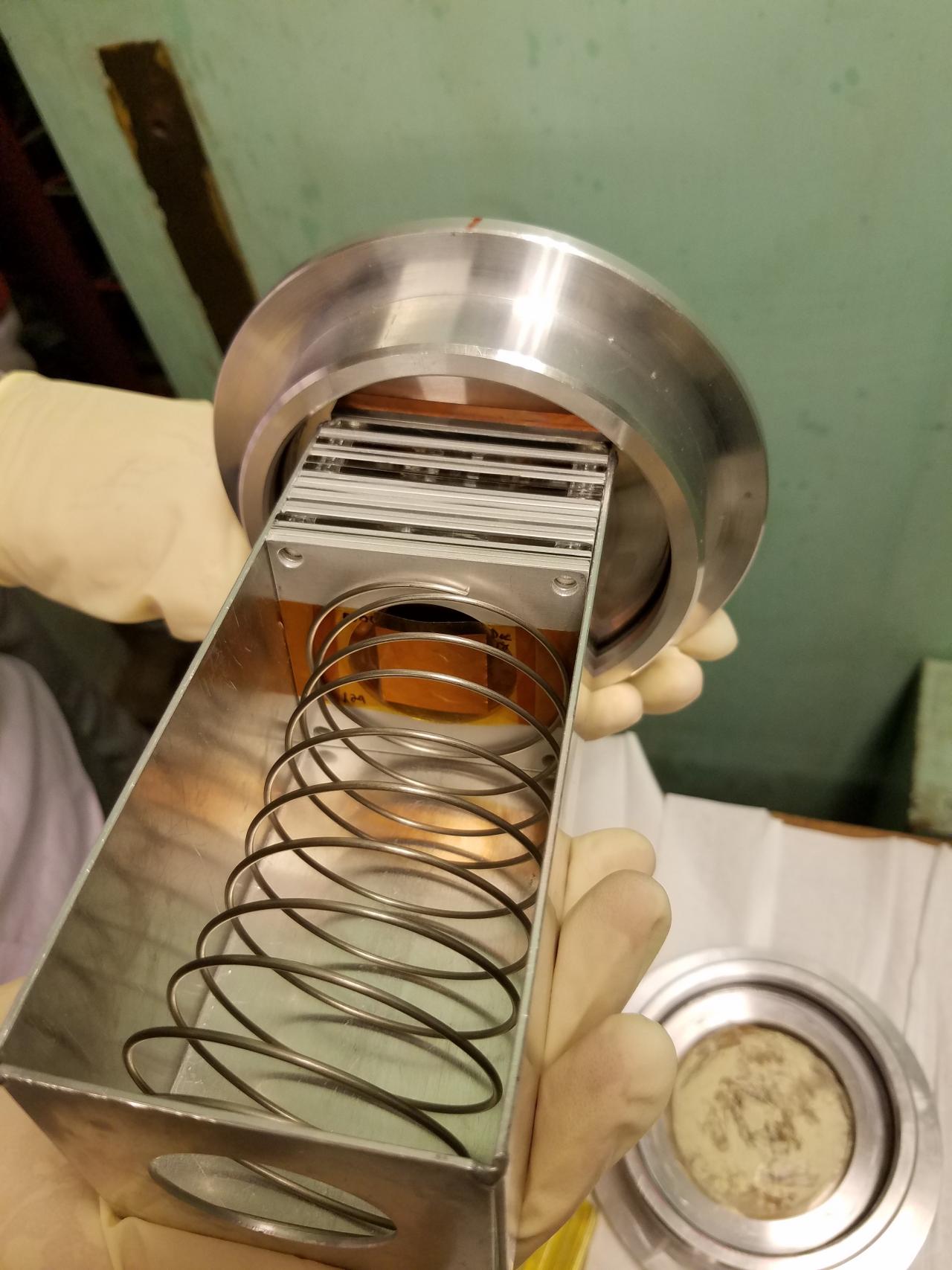
Precision nuclear data measurements
In cases where reaction data has not been experimentally measured, reaction modeling codes are used as predictive capabilities for estimation of this data. However, reaction modeling for charged particle beams remains largely untested, with estimated cross sections often incorrect by more than an order of magnitude, due to a paucity of well-characterized reaction data used for tuning these codes.
Our program works on producing well-characterized, precision reaction data measurements, using “variance minimization” techniques to reduce the systematic uncertainties which often plague such measurements. Well-characterized data is necessary for improving our reaction modeling capabilities, but also has numerous applications in science and engineering, including:
- the design of next-generation nuclear reactors,
- improved radiation shielding design,
- increased efficiency in radionuclide production
Further, we are actively using our measurements, collected from campaigns spanning wide ranges of beam energy and particle type, to develop new models and refine existing one, leading to improved predictive capabilities in reaction modeling.
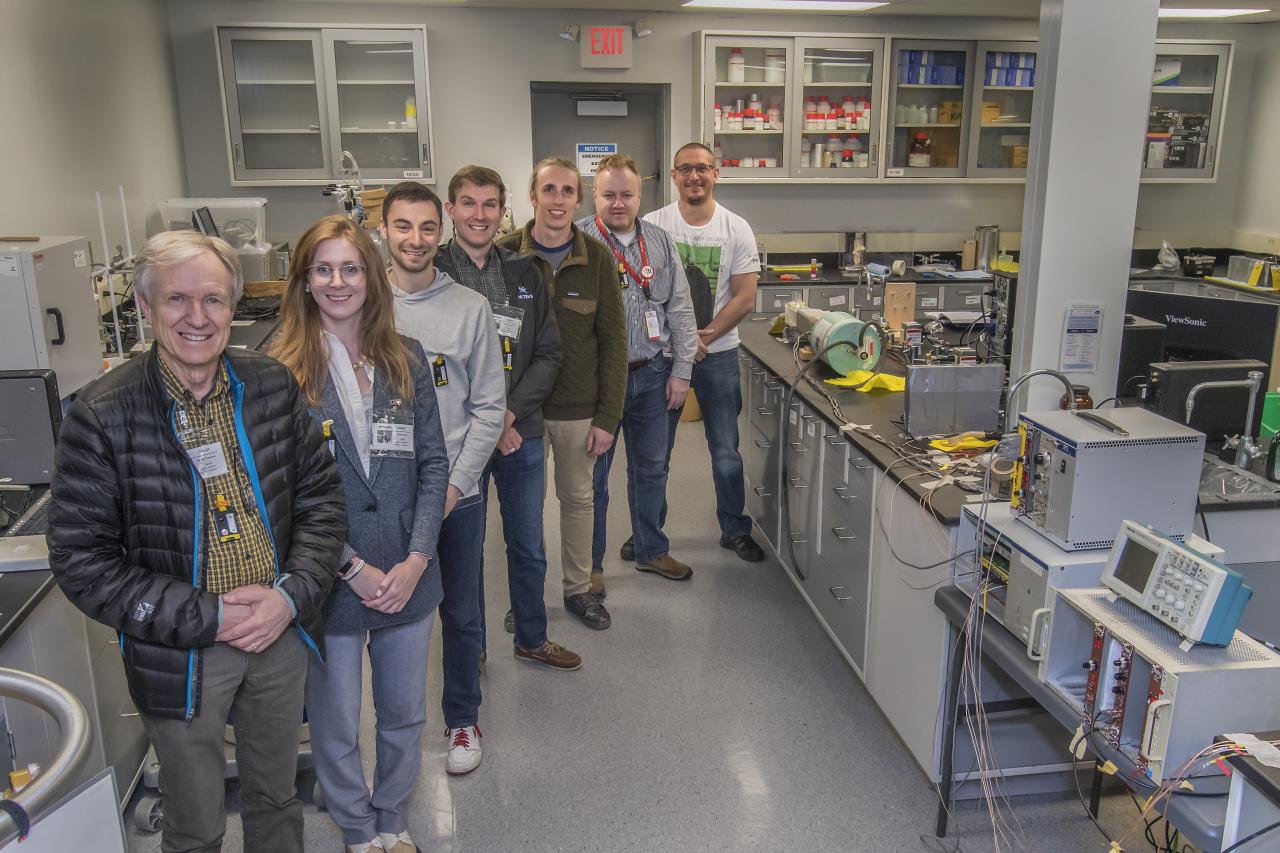
Tri-Lab Collaboration
Energetic charged particles are one of the workhorses of domestic Isotope Production activities. However, for many isotopes of interest, production cross section data is severely lacking. This project seeks to establish capabilities for charged particle cross section measurements for the nuclear reactions that are relevant to isotope production needs. The focus is on proton reactions induced in the energy range from 0-200 MeV, to leverage the accelerator capabilities of the DoE Isotope Program. more
Acknowledgements
Lawrence Berkeley National Laboratory receives funding from the U.S. Department of Energy Isotope R&D and Production Program (DOE Isotope Program), managed by the Office of Science, as part of a suite of national laboratories and universities focused on isotope R&D and production. The mission of the DOE Isotope Program is to produce and distribute stable and radioactive isotopes for research and applications that are in short supply and critical to the prosperity and security of the Nation. The DOE Isotope Program supports isotope production, R&D on isotope production techniques, workforce development, and reduction of U.S. dependency on foreign supply chains. Those interested in purchasing stable or radioactive isotopes from the DOE Isotope Program should contact the National Isotope Development Center.
